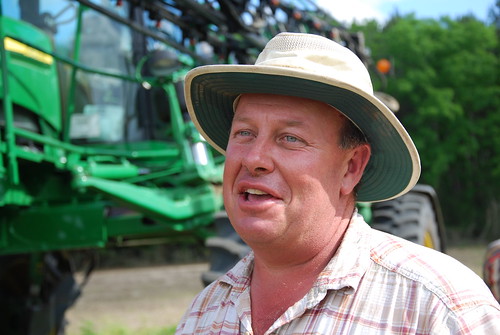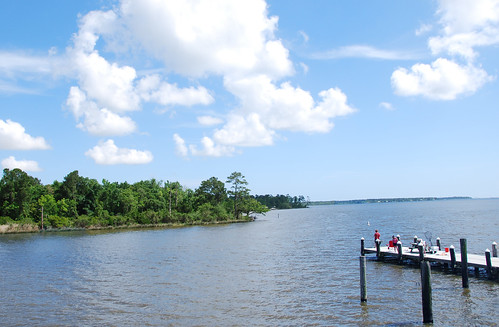
Days before planting season in April, up to 26 inches of rain had fallen in southern Alabama over a span of two days. This rain event caused historic flooding in Baldwin County in a coastal part of the state, where farmers had freshly tilled fields in preparation for planting crops.
These tilled fields lost valuable topsoil during the flood. But the outcome was different for Tim Mullek and his family, who grow cotton, peanuts, soybeans, wheat and corn on about 2,500 acres in the Fish River watershed, located about 20 miles from the Gulf of Mexico.
Mullek is a no-till farmer whose fields were planted to cover crops when the rains fell. He said soil losses were minimal, proving that cover crops protected the land and ultimately the quality of runoff water delivered to the Gulf.
“We are a no-till farm, and we had very little soil erosion,” Mullek said.
The Mulleks worked with USDA’s Natural Resources Conservation Service to develop a conservation plan that includes water and soil quality improvements, along with implementing conservation practices that improve soil health, manage nutrients and reduce the amount of sediment and pesticides that leave their property. The benefits of implementing these practices became apparent after the rain event.
They also use precision agriculture technology to apply nutrients and pesticides using a global positioning system, or GPS, and programs like “swath control,” which can turn sections of a planter on or off to guarantee the fields are not over-seeded or over-fertilized.
“I want to be a good steward of the land,” Mullek said. “I want to keep the fertilizer in my field and not in the creek. I want the land to be here when I am gone.”
The family has been receiving technical assistance from NRCS for many years. Through the Gulf of Mexico Initiative, they have received financial assistance through the Environmental Quality Incentives Program to plant cover crops and implement precision agriculture.
The Mulleks plant cover crops and practice no-till and strip-till farming on all of their land. They are certain that planting cover crops and using crop rotation has also increased organic matter in their fields. Healthy soils can absorb and retain more water, making them less susceptible to runoff and erosion and makes more water will be available for crops when needed.
“The assistance provided by NRCS to the Mulleks has been very beneficial in helping them carry out their farming plans,” said Joey Koptis, NRCS district conservationist in Baldwin County. “The technical and financial assistance provided support for their goals of operating a productive farm while protecting our natural resources.
“The family is concerned about conserving soil resources and recognizes the importance of protecting water quality. This is apparent by their participation in NRCS programs. I enjoy working with them.”


